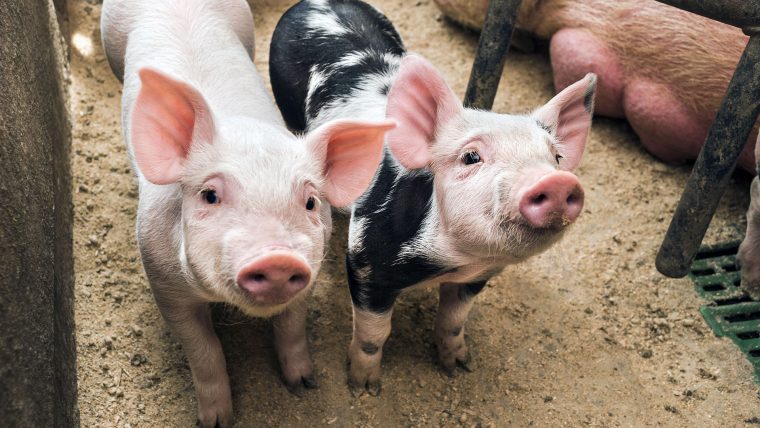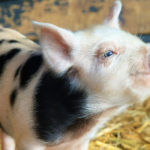
Urging FSIS to Require Video Cameras to Observe if Slaughtering Pigs with CO2 Complies with Federal Law
Submitted comments in response to FSIS announcement
Comments were submitted to the U.S. Food Safety and Inspection Service urging the agency to require the use of video cameras inside gondolas during the slaughter of pigs with CO2 to ensure compliance with the Federal Meat Inspection Act and the Humane Method of Slaughter Act
Status
Next Step
FSIS will review and rule on the petition for rulemaking on this issue.
On August 24, 2023, the Animal Legal Defense Fund submitted comments to the U.S. Food Safety and Inspection Service (FSIS) urging the agency to require the use of video cameras inside gondolas during the slaughter of pigs with CO2 to ensure compliance with the Federal Meat Inspection Act (FMIA) and the Humane Method of Slaughter Act (HMSA) as outlined in the Animal Welfare Institute’s (AWI) petition for rulemaking, which was submitted on May 16, 2023. Implementing a requirement that slaughterhouses install video cameras inside gondolas where CO2 stunning and killing occurs is necessary for FSIS inspectors to confirm that plant operators are taking all required and necessary steps to prioritize, assess, and address both food safety and issues pertaining to the welfare of animals.

The AWI petition for rulemaking demonstrates how current practices inside pig slaughterhouses that use CO2 for stunning and killing pigs fall short of the inspection requirements required by the FMIA and HMSA. FSIS inspectors are required to critically appraise each animal at all stages of handling, stunning, and slaughter to ensure compliance with federal slaughter laws, including the FMIA and HMSA. To satisfy this requirement, inspectors must be able to view pigs at all stages during the slaughtering process. Inspection connotes a direct observation close enough to disclose pertinent information relevant to the purpose of the observation. The U.S. Court of Appeals for the District of Columbia has held that this inspection requirement unambiguously dictates inspectors conduct a “critical appraisal” of each individual animal, rather than a cursory observation of the slaughter facility generally. Thus, inspection of all stages of slaughter and handling necessarily includes any time pigs spend inside gondolas.
In slaughterhouses that use CO2, pigs are typically driven into a gondola that descends into a pit containing a high concentration of CO2 at the bottom. Upon their ascendance, the pigs are either stunned or exsanguinated. Pigs’ welfare can be negatively impacted based upon their time in the gondolas. Pigs may experience pain due to formation of carbonic acid on respiratory and ocular membranes, production of so-called air hunger, a feeling of breathlessness, and a direct stimulation of ion channels within the amygdala associated with the fear response. These possible negative reactions could violate the HMSA as a chemical process meant to render pigs insensible to pain that is not “rapid and effective.” Yet, the nature of CO2 gondolas means that pigs are left entirely out of inspectors’ view. To prevent violations of the FMIA and HMSA inside gondolas, inspectors must be able to view the process.

What action has been taken? The comments were submitted to FSIS in support of the Animal Welfare Institute’s petition for rulemaking urging the agency to require the use of video cameras inside gondolas during the slaughter of pigs with CO2 to ensure compliance with FMIA and HMSA.
Why this proposed rule is important: Consumers purchase meat and poultry products under the belief that products bearing the USDA inspection seal are ethically sourced and comply with federal slaughter requirements. Current inspection processes do not meet consumer expectations, nor the requirements set forth by the FMIA and HMSA. Inspectors must directly view all steps of the slaughter process, including stunning, and given the nature of CO2 gondolas that is not possible without cameras.
Sign Up!
Join the Animal Legal Defense Fund's email list to stay up to date on lawsuits, legislation, and regulations affecting animals.

